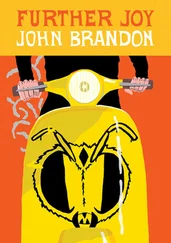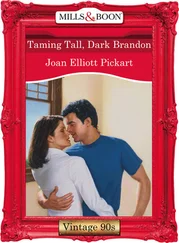On Sunday, Arn found an abandoned hoop at an elementary school near his house and shot countless deep jumpers into a steady wind, riding a high. On Monday, he waited until after first period to go to the locker room. He pushed back the door and sidled up to the roster, breathing the foul air that he’d helped taint with his basketball sweat. He belonged in the locker room, had a claim to it. His eyes darted from name to name, too fast to read them. They weren’t in alphabetical order. Arn put his hand to the paper. He worked his way down the whole sheet. He was so excited, his eyes wouldn’t work. He took a look around. No one was watching him. He started at the bottom this time and worked his way to the top. Now he felt it in his stomach. His name was not there. The names of a couple kids who were almost as good as Arn were there, and also the names of about ten kids who were clearly inferior. Blood was racing around in Arn’s head. He pulled the roster off the wall and checked the back of it, resisted the urge to rip it into pieces. A couple kids came through the door and Arn was instantly embarrassed. They paused and then squeezed past him — not kids who’d been at the tryout, just regular PE kids. All the other basketball players had come before school and found their names. Arn wondered if they’d noticed his absence on the roster, if they’d been confused, if they’d secretly determined which player had made the team who didn’t deserve to, which player was the worst of all. Arn pressed the roster back onto the wall.
When lunch period arrived, Arn was not hungry. He returned to the locker room, picked his way through to the offices where the coaches hung out. Coach Shell saw him through the glass and excused himself, stepping over some other coaches who were splitting a pizza. He came and stood in front of Arn, his head tipped to the side. He seemed like he felt guilty but was trying not to show it. Resigned is what he was — to what, Arn didn’t know. Coach Shell wasn’t saying anything. He was going to make Arn speak. But Arn didn’t. He waited it out too. Coach Shell scratched his neck. He looked at Arn like the two of them had suffered a common injustice.
“Ask your dad, or your… whatever.” Coach Shell did something to his collar and then scratched his neck harder. “Ask him why James Shell wouldn’t let you on his basketball team. I have my reasons, I guarantee you that.”
Arn did not agree to ask Ron Darling anything. All he wanted to say was that none of this was fair, but he wasn’t going to say that.
“If you’re trying to piss off Ron Darling, you should’ve let me on the team.”
Coach Shell shrugged his shirt back into place. “It’s not like you have to quit basketball for life. It’s just a middle school team. Worst one in the county.”
“Say I was the best player at the tryout. I want to hear you say it. Say I’m the best basketball player at this school.”
At this point Coach Shell must have considered his job, considered the fact that he could get in trouble for unfairly excluding Arn. All he would say was, “You worked hard out there. You gave a great effort.”
That evening Arn went into the back room of the house, where Ron Darling was sitting in front of his TV, and announced that whatever feud Ron Darling had with Coach Shell, it had cost Arn a spot on the team.
“It’s a poor musician who blames his instrument,” Ron Darling slurred.
“I’m not the musician,” Arn said. “That’s Randy. I’m blaming you.”
“James Shell can go to hell.”
“Yeah, he probably will.”
“It rhymes. James Shell can go to hell.”
“And you’ll go right along with him, you asshole.”
Ron Darling’s breath caught. He looked small in his recliner. His white T-shirt was stained down the front. It didn’t take him long — a couple shamed seconds — to understand that he had fully fallen and this was the sort of thing that happened after the fall: your once loyal charges told you to go to hell.
After the basketball episode, things went downhill at the middle school. Arn’s PE class did a unit on archery and some kid intentionally shot Arn in the arm with one of the dull wooden arrows. Arn, in frustration, broke the arrow in two, and he was sent to the office for destroying school property. Arn began drinking protein shakes and doing lots of push-ups, not even counting the push-ups, hoping for fights that never materialized. People seemed afraid of him, not in a way he enjoyed — the girls as well as the guys. He took all the money he had, the multitude of five-dollar bills Ron Darling had given him for each day he’d worked, down to the discount store and bought their cheapest home gym. He dragged it into his room and cleared a space for it, sliced the box open and spread the parts over the worn carpet. The gym didn’t use weights, but heavy bands you had to stretch. It was around midnight, five hours after he’d brought the box into his room, this box adorned front and back with pictures of a satisfied man doing curls, that Arn threw in the towel. It wasn’t his fault that the thing wasn’t coming together. There were missing parts and extra parts. The directions were vague, grammatically incorrect. The assembly, even if it were possible, did not seem a one-man job. Arn leaned down over a flap of the cardboard and drove his fist into the face of the satisfied man doing curls. He collapsed on his bed. The store where he’d bought the gym didn’t do returns; if you bought a thing, that thing wasn’t their problem anymore. Arn told himself he’d work more on the home gym the next evening, but he didn’t.
Close to graduation, Arn tried and failed to pick up smoking as a regular habit. He was relieved middle school was ending, but not hopeful about high school. He skipped the graduation ceremony, of course. He had his own ceremony, which was the cleaning out of his room, the getting rid of everything. The home gym and his basketball sneakers and a half-pack of cigarettes he’d abandoned and report cards and a coin collection he’d forgotten about and a Mariners cap he’d stolen from one of his old foster brothers. There was a lake nearby with a rotting dock and Arn guided wheelbarrow-load after wheelbarrow-load through the woods, over a hard-packed trail full of roots that bumped the wheelbarrow up off the ground, and out to the end of the dock, where he tipped the wheelbarrow forward and wrestled it side to side, dumping every scrap. He pictured the fish under there, not knowing what to think, letting the strange objects settle on the bottom of their world and then nosing closer to investigate.
His room in the afterlife was now roughly the size of his old bedroom in his parents’ house, but with the piano and the bureau and the guitar reclining in its stand the place was cramped as a closet. Reggie didn’t even pace anymore. He leaned against the walls. He didn’t want to think of his room as a cell. This place wasn’t prison and had nothing to do with prison. He believed this place had nothing even to do with laws, earthly or biblical, and whether Reggie had broken them. The floor had grown colder and Reggie had given up resting down where his mat used to be. Now he curled up on top of the bureau. With concentration, he could get the noise in his head to dull without the need of whistling or humming, but in time his concentration always gave out. He thought of the desert mornings, so obvious and refreshing. He thought of sleep, of open spaces.
He thought, at long last, of Cecelia, of the way she frowned when happily surprised and smiled when disappointed. He never could’ve done it consciously, but some wise part of him had kept him from dwelling on Cecelia until now. Some conservative branch of him had saved her for an emergency, and that’s what Reggie was in the midst of. That, or the afterlife was now directly controlling Reggie’s memory. The afterlife had broken Reggie down emotionally and now was giving him the comfort of a friend. Cecelia was an ace being played.
Читать дальше












